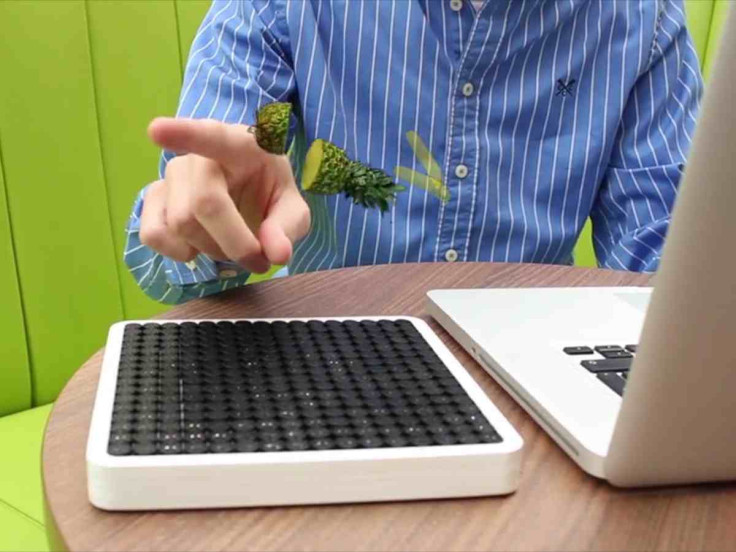Ultrahaptics: Bringing the sensation of touch to virtual reality

A UK startup has developed tactile technology that allows users to "feel in mid air", which it hopes will have profound implications on the emerging field of virtual reality (VR).
Bristol-based Ultrahaptics intends to overcome one of the biggest obstacles to creating a truly immersive experience by integrating the sensation of touch to the technology.
"We'll never create this complete immersion without this physical feedback," Tom Carter, co-founder of Ultrahaptics, told IBTimes UK. "If you don't have the sense of touch it will really break down the VR experience. This is what we're trying to solve."
Ultrahaptics was at the SouthWest VR conference in Bristol today (24 February) to showcase the technology, which uses a small array of ultrasound speakers to create "haptic holograms".
The haptic feedback created is both invisible and soundless and is capable of replicating textures, such as brick and metal.
Theoretically, any texture can be recreated using ultrasound vibrations so long as the texture can be mapped, even something as complex as flowing water.
Carter and Ultrahaptics are currently in discussions with several companies to help develop a demonstration of the technology within a virtual reality context.
Beyond VR, Ultrahaptics sees use for this technology as a method of replacing controls for devices in everything from consumer electronics to home appliances.
The startup is also working on ways to incorporate 3D shapes, as well as a way to make it small enough to be embedded in devices like smartphones and tablets. So far ultrasound speakers 1/40<sup>th of the size of the prototype have been developed.
"We've created a technology that allows you to feel in mid air," said Carter. "My big hope is you'll be able to put on a VR headset and be able to reach out and touch and feel.
"I think this is going to be one of the most useful things for virtual reality in the future."
© Copyright IBTimes 2024. All rights reserved.






